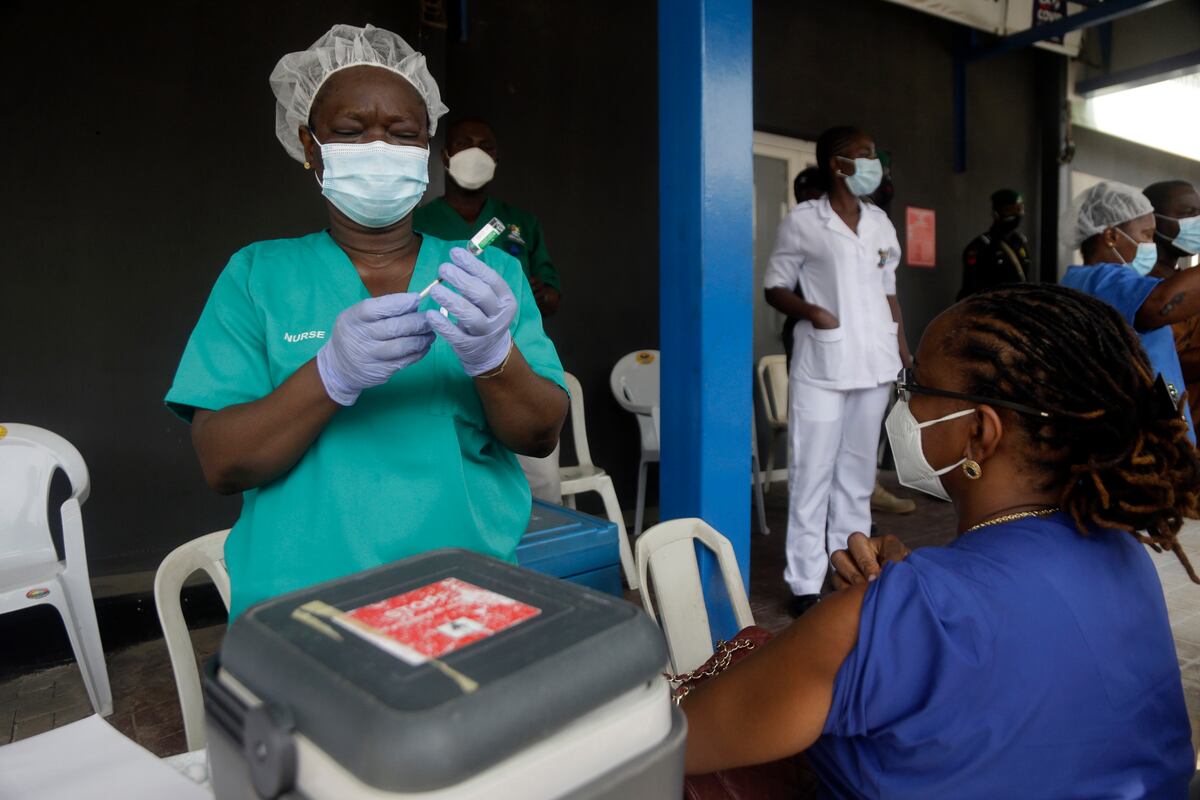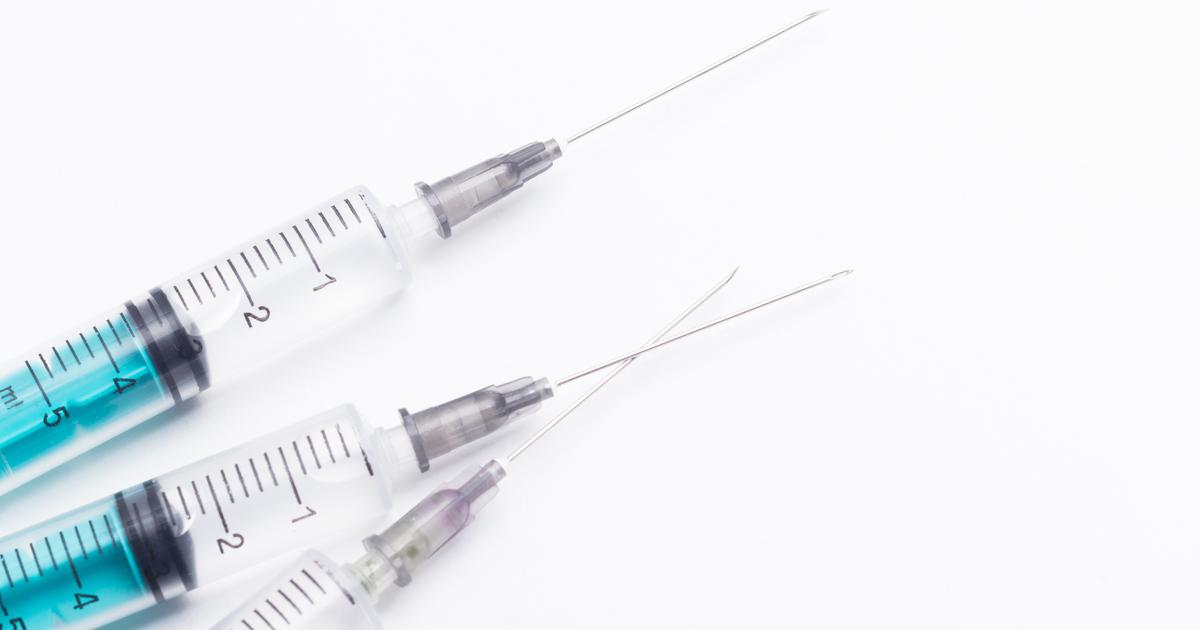The reaction of governments in the Global North to the discovery of the omicron variant in South Africa has provided further proof - as if further proof were needed - of the profoundly uneven response to the coronavirus pandemic.
The backlash against African countries was swift and severe, as if barring travelers from the region could somehow keep the rest of the world safe.
It hasn't, and closing borders won't work when the next terrifying variant comes up, either.
What happens is that global injustice does a lot of harm to public health.
While more than half of the world's population has already been vaccinated against COVID-19, only 8% of people living in low-income countries have received a dose of the vaccine, compared with 48% of those who live in lower-middle-income countries, and vaccination rates are much higher in high-income countries.
As of November, the United States had administered a number of vaccines that is more than double the doses that had been administered throughout the African continent.
Closing borders will also not work when the next scary variant comes up
Given these figures, it is not surprising that variants of concern continue to emerge and spread rapidly in countries with low vaccination rates.
And this disparity is not an accident.
It is a direct result of nationalist policies and the hoarding of vaccines by rich countries.
Even before vaccines were available, many experts, including the Director-General of the World Health Organization, Tedros Adhanom Ghebreyesus, warned of the consequences of vaccine nationalism.
Despite this, rich countries have monopolized the supply of vaccines, in some cases buying enough doses to inoculate their entire populations nine times.
The vaccination disparity is not an accident.
It is a direct result of nationalist policies and the hoarding of vaccines by rich countries.
During the northern hemisphere summer, it seemed that the trend regarding these issues was changing.
In June, G7 members pledged to donate their surplus doses to low-income and lower-middle-income countries, either directly or through mechanisms, such as the Global Access Fund for covid-19 Vaccines (COVAX). .
As more and more people in rich countries got vaccinated, there was some hope that nationalism and the hoarding of vaccines might come to an end and that doses of vaccines would finally get to the countries that desperately needed them. need.
But in recent months it has become clear that vaccine nationalism has not ended. In fact, on the contrary, this nationalism has mutated.
Rich countries, such as the United States, began pushing for additional doses of some vaccines, even before there was evidence to support booster shots. In fact, shortly before the WHO called for a suspension of booster vaccines until the vaccines reached those who need them most, the United States signed an agreement to buy 200 million doses of the vaccine from Pfizer. BioNTech for the purpose of using them as a booster. At that time, the use of third doses of vaccines as boosters had not even been approved by the US Food and Drug Administration (FDA).
But booster vaccines in developed countries are not the only reason low- and middle-income countries lack doses. Canada, Spain and Germany, among other countries, pledged months ago to donate millions of vaccines directly to low- and middle-income countries, as well as Covax. However, recent figures show that many governments have failed to honor these commitments. For example, the UK pledged to donate more than 70 million doses, but has met less than 7% of that pledge.
Drug companies and wealthy governments have been quick to blame the low level of vaccine consumption in poor countries on people's hesitancy about whether to receive the vaccine and underdeveloped health care delivery systems. . At a media briefing on the pandemic, organized by the International Federation of Pharmaceutical Manufacturers and Associations (IFPMA), Pfizer CEO Albert Bourla stated that the level of indecision regarding receiving vaccines in Africa Sub-Saharan is "much, much higher than the percentage of indecision in Europe, the United States or Japan." He said this despite the fact that there is evidence that vaccinations are lower in Africa than in many wealthy countries.
Bourla's effort to deflect the blame regarding low vaccine coverage was an attempt to justify Pfizer's profits.
From the beginning, this company has prioritized profitable deals with rich countries over its technology for vaccine development with African producers.
AstraZeneca, one of the few pharmaceutical companies that reached agreements for equitable access to its vaccine through a licensing agreement with the Serum Institute of India, recently announced that it would begin to increase the price of doses in order to obtain Profits.
This decision reflects the worryingly wrong perception that the pandemic is over.
Rich countries have also been promoting a narrative that African governments lack the infrastructure and capacity to manage the doses that have been achieved. But this review ignores the conditions in which the doses have arrived. Donations have often come unannounced, many of them nearing expiration. Lacking information on the type, quantity and status of incoming vaccines, health officials cannot make arrangements to distribute them on time. It is worth noting that despite these challenges, African countries have been able to administer 62% of the doses they have received.
This scapegoat obscures the reality that low vaccine uptake in Africa is a direct result of vaccine hoarding and the nationalist policies of rich countries. And efforts to rectify this inequality have been blocked by the very governments that have an excess of vaccines. For example, an IPR exemption for covid-19 vaccines is a crucial mechanism to increase their availability. But although South Africa and India applied for an exemption to the World Trade Organization more than a year ago, the request has been repeatedly blocked by countries such as France, Germany, Spain and Canada.
It is clear that disparities in access to vaccines are not an accident of fate, but the result of concerted efforts by rich countries to keep vaccine supplies within their own borders, as well as the efforts of companies. pharmaceutical companies to increase their profits. It is time for the governments of rich countries, and the pharmaceutical companies serving those governments' interests, to share vaccine doses fairly. Until everyone in the world has access to the vaccine, no one will be safe.
Safura Abdool Karim
is a public health lawyer at the University of KwaZulu-Natal, a member of the African Alliance for Vaccine Distribution and the Association for the Manufacture of Vaccines in Africa, both programs belong to the African Centers for Control and Disease Prevention (Africa CDC).
Translation from English: Rocío L. Barrientos. Copyright: Project Syndicate, 2021.
You can follow PLANETA FUTURO on
,
and
, and subscribe
to our 'newsletter'
here
.









